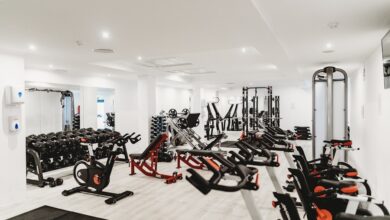Unlocking the Secrets: The Optimal Duration for Perfect Nap

As a wellness enthusiast, you’re probably already familiar with the numerous health benefits of getting a good night’s sleep. But what you might not already know is that napping is equally therapeutic.
Well, that might sound rather ironic, considering that many people actually associate naps with increased fatigue and reduced daytime productivity. However, napping at the right time, in the right place, and for the right duration can optimize your performance significantly.
Read on to find out how.
How Long Should Naps Be?
Before we delve into the potential health benefits of napping, it’s important to start by understanding the optimal duration for a nap. That’s because very short or overly long naps can be harmful to your health.
So, how long should a nap last?
According to the Centers for Disease Control and Prevention (CDC), an ideal nap should range from 15 to 30 minutes, with 20 minutes being the average duration.
What Are The Benefits Of Napping?
- Increases Alertness
Ever felt like you’re really struggling to push through with an assignment or pay attention during a boardroom meeting? Perhaps all you need is a nap.
It’s a lot easier to pay attention after snoozing off for a couple of minutes.
- Lifts the Mood
It’s nearly impossible to go through a day without experiencing mood oscillations. Depending on the trigger, mood swings can reduce your daytime productivity significantly.
Fortunately, you don’t need to take antidepressants to address this nagging mental problem. A short nap might be all it takes to elevate your depressed spirits.
- Relieves Stress
Mood swings are among the top triggers of stress and anxiety. However, stress might also result from underlying issues, such as sleep deprivation.
It turns out that napping for about 20 minutes may relieve anxiety by restoring your immune health.
Photo Credit: AdobeStock.com
- Aids Cardiovascular Health
Several studies investigating the effects of napping have shown that light sleep might support various aspects of the cardiovascular system.
Snoozing notably lowers blood pressure caused by intense anxiety. It can also restore abnormal heart rate, making it particularly useful for people with cardiac arrhythmias.
- Improves Memory
Napping is an effective memory booster, too. It doesn’t matter how technical the learned information you’re struggling to recall may be. Simply crash on the couch for a few minutes, and it will all return to you.
Coupled with its ability to increase alertness, it’s evident that napping can support the whole learning experience.
- Stimulates Creativity
There comes a time when your brain implodes such that you’re unable to process any new information. During such moments, napping can get your creative juices flowing again.
After dozing off for about 20 minutes, you’ll realize that it’s incredibly easy to acquire new skills. Napping provides nearly the same inspirational effects as taking a walk-in nature.
- Optimizes Nighttime Sleep
Contrary to popular belief, napping during the day doesn’t necessarily reduce sleep quality at night. It actually produces the opposite effect.
Daytime naps are particularly useful for older adults struggling with sleep deprivation. Some findings indicate that taking an early afternoon nap, combined with light exercise, may aid nighttime sleep besides improving physical and mental health.
- Saves Money
An alternative way to achieve all the benefits of napping would be to invest in expensive supplements and energy drinks, such as coffee.
However, the cumulative cost of drinking coffee to stay alert during the day is substantially higher than simply taking a nap to achieve the same effects.
Proper Napping Habits
Now that napping provides immense health benefits, you’re probably wondering how to make the most of it.
As already hinted, an ideal nap should last around 20 minutes. Shorter or longer naps may be ultimately counterproductive. You’ll wake up feeling groggy and disoriented, affecting your ability to transition back to work.
Other proper napping habits relate to when and where to doze off.
The best time to nap is around 3:00 pm. Napping too late in the day might reduce your nighttime sleep duration, while napping too early indicates an already unhealthy sleep routine.
As for the where, it’s recommended to doze off in a cool, quiet place. This could be on the office desk or in your car.
Be sure to pick a safe place, too. You certainly wouldn’t want to catch a nap in the middle of a barbecue or crane operation.
Last but not least, remember that napping shouldn’t be an excuse for inadequate nighttime sleep. Always ensure you’re getting the recommended sleep duration every night, without which daytime naps would be meaningless.
Coffee versus Napping
Drinking a cup of coffee can provide similar benefits as napping. But the fact that napping is an all-natural and cheaper intervention makes it the preferable option.
However, you might also consider supplementing your naps with coffee. In this case, it’s best to drink before nodding off.
That’s because caffeine requires several minutes to activate. As such, it’s likely to kick in when you wake up, optimizing your performance.
3 benefits of resting in the early evening
Resting for a short timeframe, particularly in the early evening, can be useful for you.
Power rests can, truth be told:
- Increment energy levels
- Further develop state of mind
- Support efficiency and fixation
- Remember that rests ought not be utilized as a substitute for rest around evening time.
“It’s a decent advantage and expansion to a decent night’s rest,” says Harris. “[But] you’re not getting similar kind of phases of rest and similar advantages” as dozing at sleep time.
On the off chance that you have a sleeping disorder, Harris urges you to rest on agreeable surfaces like your sofa, rather than in your bed, to try not to upset your rest later on. In the event that you don’t have a sleeping disorder, snoozing in your bed is thoroughly fine, she adds.
Also, on the off chance that rests appear to cut into your rest time in the nights, consider eliminating rests from your daily schedule.
“A rest, when we use them suitably, [should be] similar to some espresso,” Harris says. “A smidgen of an energy shot around mid-afternoon.”
Photo Credit: AdobeStock.com
Final Word
Napping provides many therapeutic health benefits. However, your ability to enjoy those perks depends on when, where, and how long you nap.
It’s also worth reiterating that napping too frequently might indicate sleep deprivation. In such cases, your best bet would be to fully pay off your sleep debt before you can think of unlocking the benefits of napping.



